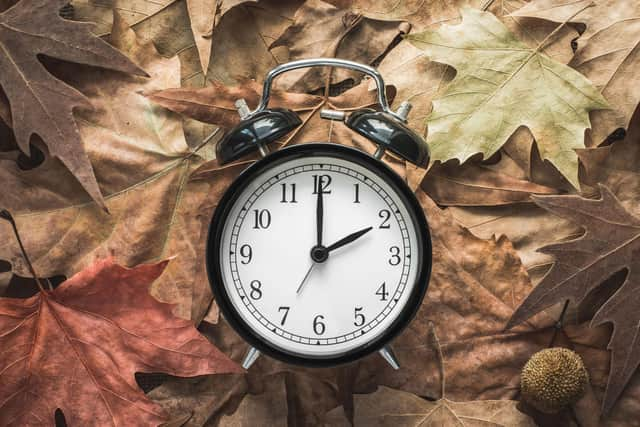Clocks Going Back 2022: Here's how to stop the hour change impacting your sleep patterns and ensuring you get a good night's rest
While that extra time in bed will be welcomed by many, for some it could have an unforeseen impact on their sleeping patterns in the weeks following, as the change in time disturbs our internal body clocks.
Other external factors, such as the amount of natural light or darkness we are exposed to, can also influence our sleep, which is why events such as clocks going back, can impact our sleeping routines.
Advertisement
Hide AdAdvertisement
Hide AdSleep expert at Silentnight, Hannah Shore explains that our sleeping patterns are controlled by our circadian rhythm, which intuitively tells our brains and our bodies when it’s time to wake up and go to sleep.
Hannah Shore, Sleep Knowledge & Researcher Manager at bed experts Silentnight, said: “People may notice they feel sluggish, fatigued, or agitated for a couple of weeks following the change in time and may find it more difficult to drift off at night or wake up in the morning.
“This feeling is often likened to jetlag, which also happens when external factors are out of sync with our circadian rhythms.
“While this may sound tiresome, the good news is there are things we can do to fix this and re-set out internal systems, so we can enjoy a good night’s sleep once more.”
Here are Hannah’s top tips.


Natural Light
Morning light is the key to waking up! Winter mornings are typically dark, so I would advise to try switching a lamp on as you wake up. Throughout the day, make sure you venture outside and soak up the vitamin D, especially when the sun rises.
Natural light (even when it's cloudy!) is brighter than the light in your house and can help suppress sleep hormones. Dawn simulating alarm clocks are a fantastic way to wake up gently, and with natural light so you’re ready to face the day.
Ditch the artificial light
Similarly, natural evening light is at a low level when the clocks go back. Try to minimise your light exposure in the evening, opt for lamps or candles instead of "the big light". Also, avoid technology at least two hours prior to your bedtime. If you must use it, please ensure you have ‘sleep mode’ activated – swapping the harsh blue light for a warm yellow light on your phones display.
Earlier nights
As an adult with responsibilities, social lives, and errands to run, it’s hard to fit an early bedtime into your evening routine. It doesn’t need to be an immediate change over one night – going to bed at 9pm instead of 10pm - but try to adjust your bedtime by 10 to 15 minutes each night. This will slowly allow you adjust to the new time and help to reduce you feeling sluggish after the clocks fall back.
Don’t overthink it
Advertisement
Hide AdAdvertisement
Hide AdThis one is hard and is easier said than done. Try not to over think sleeping. The more we think about sleep, the less we end up having. If you lie there in bed struggling to fall asleep, you will become agitated, so change your environment and distract yourself. I’d recommend getting up, going to the sofa or to another bed in your home, reading a book or listening to a podcast until you fall asleep.
Comments
Want to join the conversation? Please or to comment on this article.